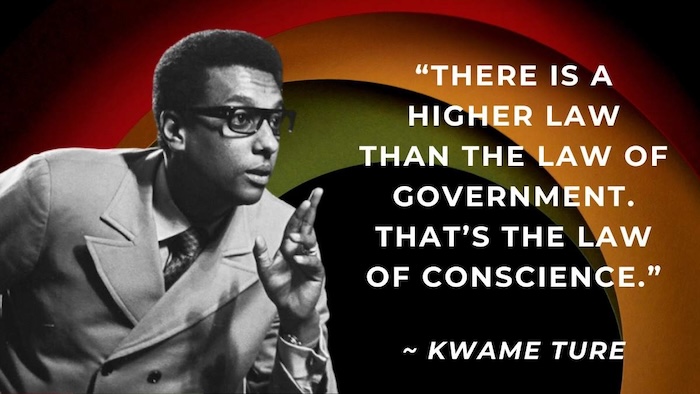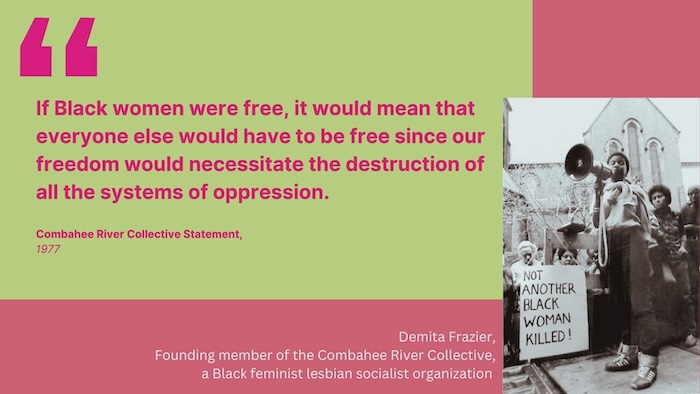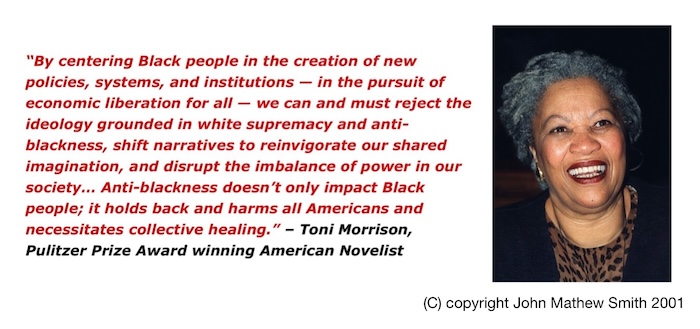
We hope you've been able to enjoy some of your local Black History Month celebrations, events, and activities. Woven within the festivities are remembrances of courage, resistance, resilience, tales of collective liberation, community organizing, multi-racial solidarity, triumph over struggles, healing, creativity, afrofuturism, transformation, reclamation of culture, art, joy, and magic.
There is good reason to celebrate now, and beyond Black History Month as we continue to learn together from the past and make commitments to co-create a future of liberation and belonging.
As we all know, Black/African American history and stories have been intentionally and systematically excluded, erased, stolen, and minimized over the centuries, and continues to this day. At the Housing Alliance, it is important that we do not lose sight of this, particularly as a statewide alliance of members working towards influencing and passing policies that are equitable and racially just.

Making the connection between housing justice and racial justice
It is clear that white supremacy has shaped the westernized co-optation of Turtle Island to the so-called United States since the violence of settler colonialism began over 500 years ago. According to Monika Batra Kashyap, professor at Seattle University, “A settler colonialism framework recognizes that the United States is a present-day settler colonial society whose laws, institutions and systems of governance continue to reenact the three processes upon which the United States was built—Indigenous elimination, anti-Black racism, and immigrant exploitation.” (article link) We acknowledge that this system is very much alive, particularly in systemic policies which impact an individual's ability to access safe, stable, affordable housing, let alone a spectrum of choice of where to live so they and their loved ones can thrive in equal measure to people who have been allocated more privilege.
Past and current housing policy has caused a racial wealth gap that limits or restricts every aspect of life with few opportunities for economic upward mobility. Due to exclusion from homeownership through intentional practices such as failure to allow use of the GI Bill, discriminatory mortgage lending policies, restrictive covenants, racial segregation, redlining, gentrification, and more, a majority of people of color are renters - increasing the racial imbalance of power and leaving people of color disproportionately vulnerable to the instability that comes from excessive rent increases and evictions.
The impact of racially discriminatory practices from multiple systems and institutions, including housing and employment have ensured disproportionately higher rates of poverty for Black and brown people. These policies are still embedded within state policy, as well as federal, and local laws.

People who experience racial discrimination in policy and practice will always experience multiple and compounding barriers. This discrimination has been proven to increase for people who have a darker skin tone. Using Targeted Universalism as a framework, we understand that creating policy that focuses on the needs of those most marginalized will offer gains for everyone experiencing housing instability and homelessness.
The Housing Alliance’s staff and board have made a commitment to “prioritize equity and racial justice on our policy priorities, organizing strategies, and organizational culture.” We believe that achieving housing justice is intrinsically doing the work of racial justice.
Members of the Resident Action Project (RAP) regularly receive training on the disproportionality of housing injustice for Black and brown people, says Duaa-Rahemaah Hunter, Statewide Organizer for RAP. We believe that “Those closest to the problem are closest to the solutions, but furthest away from the resources and decision making tables.” (Glenn E. Martin) Our aim is for policymakers to also center the voices of those with lived expertise, particularly Black and brown people with intersecting identities such as gender, gender expansive people, people with disabilities, people with children, people who were formerly incarcerated, and people who have very low to no income. We encourage more people with these identities to join RAP for more equitable systems change.

Being explicit about racism and anti-Blackness. Being intentional about becoming pro-Black
Racism is an underhanded tool of the oppressor to create divisiveness among the masses, so that people with power can continue to stay in and hoard that power. It is intertwined within everyday life and has been normalized in a manner to be accepted widely by the public. Over the last decade there has been a culture shift toward awareness, learning, and anti-racism in action. Our world opened its eyes wider during the uprisings of 2020, after the murders of George Floyd and Breonna Taylor. We must be explicitly clear about the harm done toward racialized peoples so that we do not inflict or repeat this harm. We must speak plainly about anti-Blackness and consider how our biases, as well as our organizational cultures, including policies and practices, and all systems are perpetuating racism against Black people. Only then can we take action toward dismantling anti-Blackness within ourselves and help our organizations move toward having a pro-Black culture that includes the intentional creation of a culture of belonging, celebrating differences, understanding transformative justice, supports for healing generational trauma, tools for generative conflict, and building movements toward liberation.
Video resources:
Housing Alliance Action-Shops with Sidney Morgan, MA, Red Sea Road Consulting
“#RaceAnd” webinar series by Race Forward explicitly discusses race and other intersecting identities or issues such as gender, disability, housing, healthcare, etc.
Affinity spaces:
If you identify as Black, Indigenous, a person of color (BIPOC) or multi-racial/multi-ethnic BIPOC and are interested in our BIPOC Monthly Gathering space, please email Ma.Caroline so you can be added to the email list: macarolinel@wliha.org
If you identify as white and are interested in joining a white affinity learning spaces, please complete this interest form to be contacted when this program begins.
Celebrating Black-led organizational members and partners in the movement
We’ve had the honor of working alongside some remarkable organizations over the years who have partnered with us to help inform our work and pass equitable legislation. Please take some time to learn more and join us in supporting the amazing work they do!
Lavender Rights Project and the Black Trans Task Force
Odyssey World International Education Services
Health and Justice Recovery Alliance
Urban League of Metropolitan Seattle
East African Community Services
Closing words from Pam Duncan, Chair of our board’s Equity and Racial Justice Committee:
Let us not continue to fool ourselves that racism is a thing of the past and that the multiplicity of ways it shows up is just history. I am reminded of a quote by Primo Levi, “it happened, therefore it can happen again…” As many before us have stated (including Frederick Douglass and Bishop Desmond Tutu), “to be free is to be ever vigilant.” Regardless of race, gender, nationality, ethnic identification, it is not an option for any of us to ignore or to choose not to be an active and intentional participant in insistently and persistently transforming our collective narrative from one of othering to one of belonging.
In solidarity, and community-led power building,
ma.caroline and rachael
Ma.Caroline Lopez, Director of Equity, Racial Justice, and Culture
Rachael Myers, Executive Director

